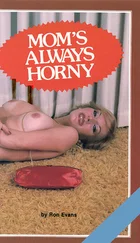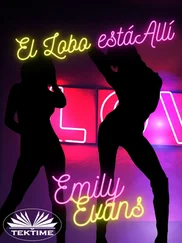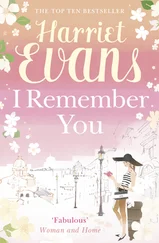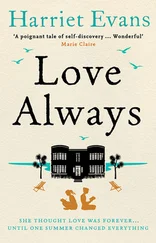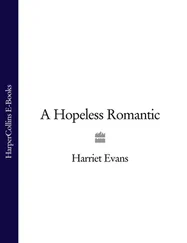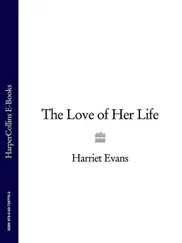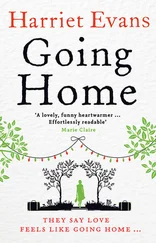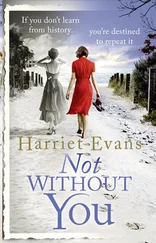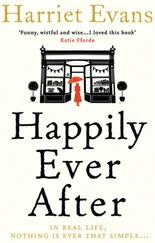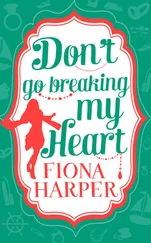Harriet Evans - Love Always
Здесь есть возможность читать онлайн «Harriet Evans - Love Always» — ознакомительный отрывок электронной книги совершенно бесплатно, а после прочтения отрывка купить полную версию. В некоторых случаях можно слушать аудио, скачать через торрент в формате fb2 и присутствует краткое содержание. Жанр: Старинная литература, на английском языке. Описание произведения, (предисловие) а так же отзывы посетителей доступны на портале библиотеки ЛибКат.
- Название:Love Always
- Автор:
- Жанр:
- Год:неизвестен
- ISBN:нет данных
- Рейтинг книги:3 / 5. Голосов: 1
-
Избранное:Добавить в избранное
- Отзывы:
-
Ваша оценка:
- 60
- 1
- 2
- 3
- 4
- 5
Love Always: краткое содержание, описание и аннотация
Предлагаем к чтению аннотацию, описание, краткое содержание или предисловие (зависит от того, что написал сам автор книги «Love Always»). Если вы не нашли необходимую информацию о книге — напишите в комментариях, мы постараемся отыскать её.
Love Always — читать онлайн ознакомительный отрывок
Ниже представлен текст книги, разбитый по страницам. Система сохранения места последней прочитанной страницы, позволяет с удобством читать онлайн бесплатно книгу «Love Always», без необходимости каждый раз заново искать на чём Вы остановились. Поставьте закладку, и сможете в любой момент перейти на страницу, на которой закончили чтение.
Интервал:
Закладка:
At the thought of my grandmother, a few days after Cecily’s death, reading the diary where her own daughter finds out about her infidelity, I feel almost sick with pity, for her, for Cecily, for Arvind, for Mum. . . . For al of them.
‘But I am glad Louisa has never known,’ Arvind says firmly. I look out of the French windows to see Louisa trotting across the lawn. ‘People make mistakes, terrible mistakes,’ he says. ‘But I loved Frances. I loved her. We understood each other. That’s al that matters. That’s why we stayed together, al these years. I understood what she’d done, and how she felt. I wasn’t a perfect husband. A good father. My work always came first. It was easier, to lock yourself away in your own mind, you know?
‘She understood what she’d done. We tried to be better people afterwards.’ He nods. ‘And some things are best left untouched. Left in the past.’
Only if you learn to move on afterwards, I want to say. But you didn’t, did you? None of you. And the ones who weren’t involved spent their whole lives trying to make things better without knowing why, like Louisa, or going as far away from it al as possible and hardly ever coming back, like Jeremy. I look around the room, which is darkening now as the clouds out to sea scud over the sun. I don’t recognise this place any more.
The door opens, and I can hear the murmuring chatter that has been building al this time burst in on us, loud like a hive of bees. Louisa comes into the room.
‘Miranda? Ready to take the music soon?’ She looks at us. ‘OK?’
I see Mum taking in her out-of-breath cousin, in her slightly too-sheer white kaftan, red shining face, floral skirt and fluffy blonde hair.
‘Thanks, Louisa,’ Mum says, walking towards her. ‘Yes. I think we’re ready. Aren’t we?’
She looks at me and Arvind. ‘Yes,’ I say. ‘We are.’
Chapter Forty-Five
Louisa has planned it al out, of course. The invited guests have been gathering outside, having coffee in what was the dining room, mil ing around the gardens, and now they al file into the sitting room until it is ful . I identify people from the vil age, Didier and his wife, a few glamorous-looking men and women with the stamp of New Bond Street on them. Some stop to say hel o to Arvind, sitting in his chair by the fireplace, and my mother next to him, flicking through her notes. She is pale, but seems calm. I am worried though.
When everyone is in, Louisa makes a loud ‘Shh’ sound and the room fal s silent. My mother steps forward.
‘Thank you for coming today,’ she says. ‘I am Miranda Kapoor, Frances Seymour’s daughter.’ She pauses. ‘One of her daughters.’
Someone shuffles in the crowd; a seagul cries outside. Then it is silent again.
‘We are here to launch the Frances Seymour Foundation, which wil support the work of young artists, and promote understanding and interest in al forms of art with young people today. I’l tel you more about this in a moment, but for now I’d like to talk to you a bit about my mother. Tel you about who she real y was.’
She looks down at her notes again and is silent. I bite my lip, nervous.
‘You al know that Frances Seymour was one of the best-loved and most-respected artists of the post-war period. She found an instant rapport with the public, who loved her timeless, evocative, yet entirely modern paintings. I even have a statistic here from Tate Britain, which is that “A Day at the Beach”, one of her best-known paintings, is the fifth-most popular postcard in the gal ery shop.’ She smiles at this, and a little ripple goes through the crowd.
‘What you don’t know about her is who she real y was, my mother.’
She pauses. I look around, past a couple of scribbling journalists, at the members of my family. I see, with a jolt of shock, that Octavia is here. I hadn’t expected to see her and then I think about it and it makes sense. Jay wouldn’t come unless it was made clear to him he had to. Octavia is that kind of person who has absolutely no reason to be present, so of course she is here, standing next to her mother, looking officious. She scowls impatiently at me, though that’s actual y her natural expression. Louisa is clasping her hands, her lips moving. She is counting something in her head, and I wonder what it is. The Bowler Hat is beside them, an air of quiet concentration on his smooth features, Archie, hands in pockets, nodding as he watches his sister. Arvind, as ever a mask of neutrality. And behind me on the wal : Cecily frowning.
‘Yes. Who she real y was.’
I stare at the painting, until I realise someone is watching me. Guy. I meet his gaze, and again the voice of unease strikes up in my head. He looks at me. He touches his hand to his heart, and then switches his gaze back to my mother. I think of him staring at Cecily, in this very room, al those years ago, the two of them realising their feelings for each other, how scary it was, how wonderful . . . I can see her scrawling, black handwriting, flowering across the page, the words so fresh and clear in my mind. Like electricity shooting through me, like I was alive, alive for the first time. I looked at him, & he looked at me . . .
Mum is swal owing. She clears her throat. Stares at Louisa, at the Bowler Hat. The silence is stretching, it’s too long now, she needs to say something. Don’t, Mum. Please don’t do it.
Next to me, an old, sweaty man in a pink checked shirt and ancient blazer, clutching a notebook, sighs under his breath. Stil my mother waits.
I look at her imploringly, my hand on Cecily’s necklace around my neck. Mum meets my gaze. Gives a little smile. And for the first time, I feel we understand each other, that we are the only ones who know what’s going on.
‘Frances Seymour was a difficult woman, but that is the territory with genius,’ she says. ‘She was beautiful, mercurial, enormous fun. She lit up a room. She opened her doors to anyone and everyone. You got quite used to coming back from school for the holidays and finding two Polish soldiers sleeping in your room, a penniless cel ist and her son in the attic and an ascetic priest with a long beard practising the piano in the sitting room.’ There was a low laugh. ‘She was very understanding, as wel . I remember when my brother and I were little, we said we wanted to run away and live in the woods. She came with us. She painted us huge Red Indian headdresses, and we camped out by the sea, ate sausages we’d cooked over the fire, and told ghost stories al night. When my father’s book was launched, she had a special hardback edition bound just for him, with an engraving of Lahore, his home town, on the front.’ She pauses again. ‘And when my sister Cecily died . . .’
There’s total silence in the room, and perhaps I’m imagining it, but a cloud of tension seems to hang, shimmering, over the assembled throng.
‘She never painted after that.’ Mum clears her throat again.
‘She locked the door to her studio and didn’t go back. Some asked why. If she felt guilt.’
She looks straight at the Bowler Hat. I see Louisa turn to him, questioning. An arrow of pain shoots into my knotted stomach. Don’t do it, Mum.
Please .
‘The truth is, she did feel guilt,’ Mum says.
Her head is bowed; her voice soft. I clutch my hands together so tightly it’s painful.
‘And,’ my mother says, ‘it’s also true to say she shouldn’t have. We can never know how much it cost her, to never paint again. It was her life.
But she chose to give it up. She chose to punish herself that way. She thought she was responsible for my sister’s death.’
I stare at her. ‘But she wasn’t.’ For one second, Mum’s eyes rest on me. And then she’s talking again, her gaze sweeping the floor, the sense of occasion apparent again. ‘We wil never know what she could have achieved if she’d carried on painting. We must just be glad we have what we do. And so in honour of my mother Frances, and my sister Cecily Kapoor, who never lived on to fulfil her potential, we launch this foundation.
Читать дальшеИнтервал:
Закладка:
Похожие книги на «Love Always»
Представляем Вашему вниманию похожие книги на «Love Always» списком для выбора. Мы отобрали схожую по названию и смыслу литературу в надежде предоставить читателям больше вариантов отыскать новые, интересные, ещё непрочитанные произведения.
Обсуждение, отзывы о книге «Love Always» и просто собственные мнения читателей. Оставьте ваши комментарии, напишите, что Вы думаете о произведении, его смысле или главных героях. Укажите что конкретно понравилось, а что нет, и почему Вы так считаете.


